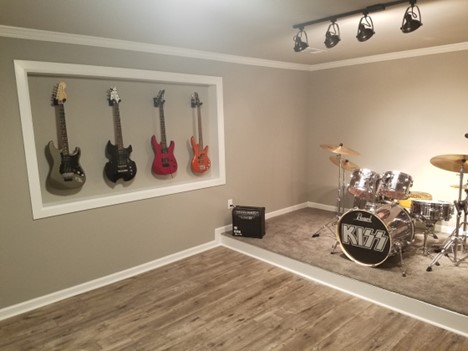
Primer used to come hand-in-hand with any paint job. However, with so many high-quality paints on the market these days, the need for primer is not as common as it was in the past. Primer is meant to prepare the surface for painting and ensures that your main coat of paint will adhere well. It becomes an important step especially if you’re not working with a completely clean slate. Here are some cases when you absolutely shouldn’t skip this step.
Porous Surfaces
Porous surfaces could benefit from a coat of primer. This is because these types of surfaces are ideal for absorbing water, moisture, oil, and all sorts of other unwanted stains or odors. While it might sound like a good starting canvas for absorbing your paint color, it is actually the opposite you want. A layer of primer will keep the paint from being sucked right into the wall and give you a clean finish.
Glossy Surfaces
A surface that is too glossy is usually one that already has paint and finish over it. Glossy surfaces are not ideal when it comes to new paint because they make it difficult for the new color to properly adhere to the wall. These may require some sanding down and primer to ensure it is ready to take on the new color.
Stained Surfaces
Primer can cover up stains that could show through your new paint. Drawing on the wall, grease stains, or any other blemishes can appear visible after painting a new color especially if you’ve picked out a lighter color. A layer of primer will easily help you hide these imperfections so much so that you’ll forget they existed in the first place.
The only situation where you wouldn’t want to use primer to cover up a stain is if there is mold or mildew involved. In this case, get the mold or mildew under control first and find the cause before going ahead with primer and paint.
Odorous Surfaces
Walls can build up odors over the years whether from cigarette smoke, pets, or strong-smelling foods. Repainting the walls gives you the opportunity to cover up these unwanted smells especially if you do it right. Those that didn’t use primers beforehand usually regret their decisions. This is because primers can cover the smells and keep them blocked off from your nose permanently.
Other Situations Where Primer is Important
It is also useful to use primer in other situations. For example, when you drastically alter your wall’s color from dark to light, primer can help make this transition much smoother. It can help properly cover up the previous color so that the tone of the new one matches exactly what you imagine.
Looking for some professional help? Contact Fillo Painting in Woodstock, Georgia at (770) 769-7941 today and ask about our interior painting services.
